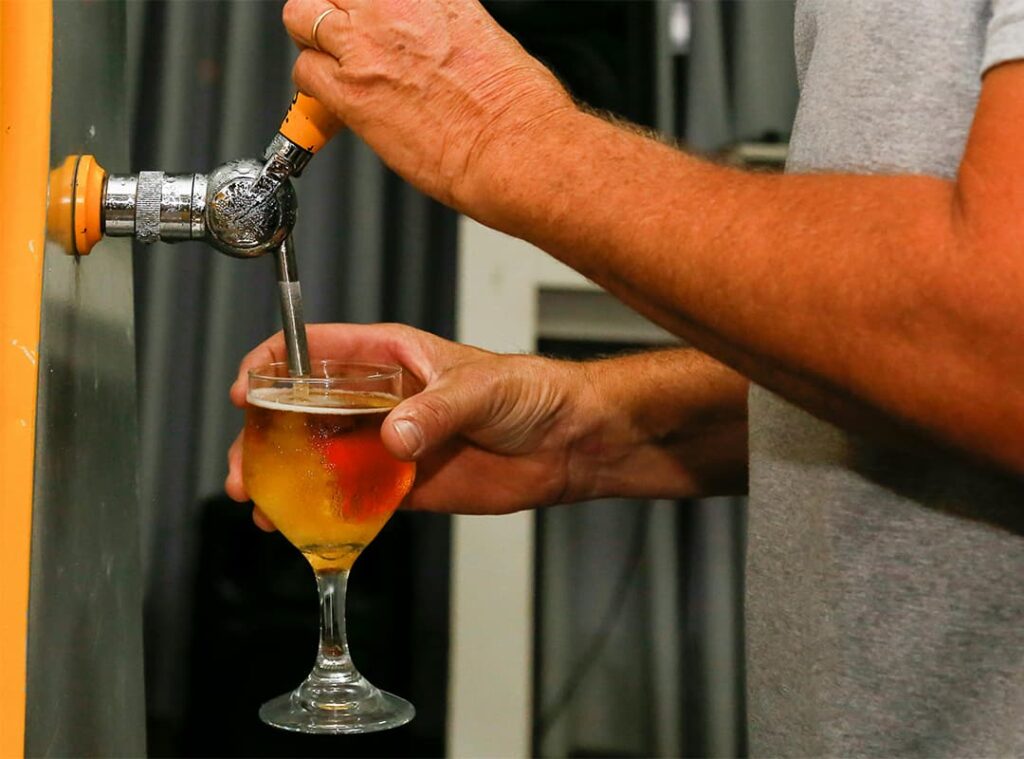Brewing beer is both an art and a science, combining creativity with technical skills. For many, it starts as a hobby—crafting small batches of homemade beer and experimenting with different flavors and techniques. But what does it take to go from a homebrewer to a professional? Whether you dream of opening your own brewery or working for an established company, the path to becoming a professional brewer requires more than just passion for beer. Here’s expert advice on how to transition from homebrewing to professional brewing.
1. Master the Basics of Homebrewing
Before you can consider yourself ready for the professional brewing world, you must first become an expert at homebrewing. Learning how to make homemade beer is the first step. This involves understanding the key ingredients—malt, hops, yeast, and water—as well as the process of brewing itself, which includes mashing, boiling, fermenting, and conditioning.
Take the time to experiment with different recipes, brewing methods, and ingredients. Track your progress and taste-test your creations. The more experience you gain, the more confident you’ll be in your ability to handle the complexities of commercial brewing.
2. Get Educated and Gain Technical Knowledge
While homebrewing is an excellent starting point, professional brewing requires in-depth knowledge of the science and technology behind the process. Consider enrolling in brewing courses or formal education programs. There are numerous institutions, such as the American Brewers Guild, the Siebel Institute, and other brewing schools that offer programs ranging from certificate courses to advanced degrees.
These programs will teach you not only the technical skills but also the business aspects of brewing, including quality control, brewery management, and marketing. Learning about microbiology, chemistry, and engineering is key to understanding the fermentation process and ensuring your beer is of the highest quality.
3. Gain Experience Through Internships or Entry-Level Jobs
One of the most valuable ways to learn about professional brewing is to get hands-on experience in a commercial brewery. Start by looking for internships or entry-level jobs where you can work alongside experienced brewers. Positions such as production assistant or brewing technician provide great learning opportunities.
Working in a real-world brewery will expose you to the challenges of larger-scale brewing, such as managing inventory, ensuring consistency across batches, and adhering to health and safety regulations. It’s also a great opportunity to network with professionals in the industry.
4. Experiment and Innovate
Just as homebrewers experiment with new ingredients and brewing techniques, professional brewers also need to be innovators. Brewing trends change over time, and successful brewers stay ahead of the curve by experimenting with new flavors, beer styles, and production techniques. As you gain more experience, try to carve out your own niche in the market, whether it’s by brewing unique styles of beer or creating signature blends.
Don’t be afraid to take risks—innovation is key in an industry that thrives on creativity.
5. Focus on Quality Control
Quality control is one of the most important aspects of professional brewing. Unlike homebrewing, where small batches and occasional mistakes are part of the learning process, commercial brewing demands consistency. Brewers must ensure that every batch meets the highest standards, from taste to appearance and aroma.
Invest in the right equipment and methods to ensure consistency and avoid batch-to-batch variability. Learning how to test for things like pH, alcohol content, and fermentation progress is essential. Many successful brewers emphasize the importance of a clean environment, a precise brewing process, and a strong attention to detail in every step of production.
6. Understand the Business Side of Brewing
Becoming a professional brewer also means understanding the business aspects of running a brewery. If you plan to start your own brewery, you will need to learn about marketing, finance, distribution, and legal compliance.
Take the time to develop a business plan, secure funding, and understand local regulations related to alcohol production and sales. If you plan to work in an established brewery, having business knowledge can still be very helpful for advancing your career and managing larger projects.
7. Stay Committed to Your Craft
Brewing is a challenging but rewarding profession. It requires long hours, attention to detail, and a genuine passion for the craft. To succeed, you must remain committed to your craft and constantly seek improvement. Attend industry events, such as beer festivals and brewing conferences, to stay up-to-date on industry trends and meet other professionals.
Networking with fellow brewers, beer enthusiasts, and suppliers is crucial to advancing your career in the industry. Always be open to learning from others, and don’t be afraid to ask questions or seek feedback from more experienced brewers.
8. Consider Specializing in a Niche
Many successful brewers have carved out their own niche within the brewing world. Whether it’s a specific beer style (e.g., IPAs, stouts, or lagers) or an area of brewing technology (e.g., barrel-aging or wild fermentation), focusing on a specialty can help set you apart in the competitive brewing landscape.
By developing expertise in a particular niche, you can become known for your unique approach and attract a loyal customer base.
Becoming a professional brewer is not a quick or easy path, but with passion, dedication, and the right knowledge, it is achievable. Start with a solid foundation in home brewing kits, gain education and hands-on experience, and always strive to improve your brewing skills. As you grow in your craft, remember that brewing is as much about creativity and innovation as it is about precision and consistency.
With the right combination of technical skills, business knowledge, and a commitment to quality, you’ll be well on your way to a successful career as a professional brewer.
